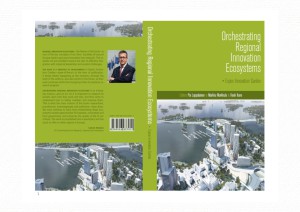ACSI 2015 Espoo will focus on CONNECTING SMART CITIZENS IN OPEN INNOVATION PRACTICE. Challenges posed by the European Commission, the Helsinki-Uusimaa region and the city of Espoo invite you to re-think the impact of innovation systems, strategies and practice, while working on actual real world challenges.
Dates: 5-7th June 2015
Place: Siikaranta, Espoo, Finland
CHALLENGES
ACSI 2015 Espoo will focus on CONNECTING SMART CITIZENS IN OPEN INNOVATION PRACTICE.
There will be three challenges, each addressed by two different working groups:

Espoo Innovation Garden as an Innovation Implementation Zone
How to develop Espoo Innovation Garden as a European Forerunner region with a special focus on implementing the City’s policy programmes Innovation & Entrepreneurship and Sustainable Development?
Specific Focus:
The Western Metro Corridor as a development zone for innovative urban solutions
• How can this Corridor be used to develop and test innovative solutions for energy, health-care, and citizen services?
Espoo Innovation Garden: What opportunities, roles, and responsibilities exist in innovation gardening? How to translate this ‘gardening’ metaphor into tomorrow’s innovation practice:
• What does it mean for the city government as gardener, the citizen as gardener, the researcher as gardener, the business start-up as gardener?
• How does this translate to sustainability and livability issues?

From Strategy to Practice – How to create world-class (social) innovations for an era of Smart Citizens?
How to implement the regional innovation strategy (RIS3), with a special focus on the spearhead “Smart Citizen”, working from strategy to practice in sustainable European Partnerships?
Specific Focus:
The role of citizens in a pioneering society for well-being: What will the identity, aspirations and needs of smart citizens be in 2020-2030? What opportunities can be identified to implement these?
Helsinki Region is building its future on digitalization: How will trends and opportunities based strongly on open data, open processes, and open digital platforms impact societal service systems?

Putting European Policy into Local Practice
Translating the EU High Level Group’s Blueprint on Innovation Ecosystems into actual practice. Realizing the Dublin Declaration’s 11 points in diverse experiments and pilots across Europe.
Specific Focus:
How to build functioning Open Innovation Ecosystems in Europe based on the instruments already existing? What is to be reinforced? How to scale up Open Innovation 2.0?
What kind of governance is needed to align goals on innovation policy and actions in the European Commission?
More information is available at: http://impactiglu.org/acsi/


